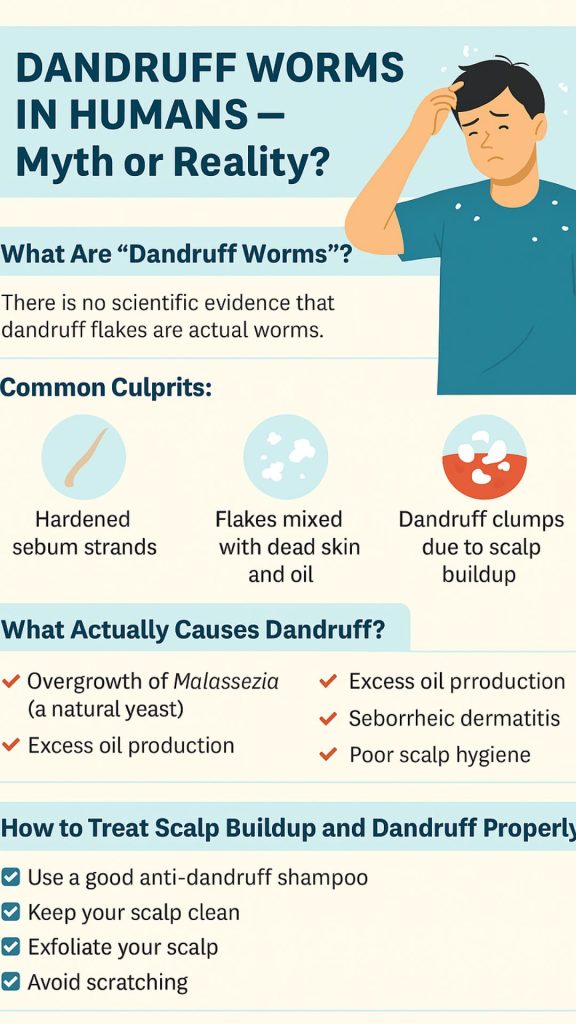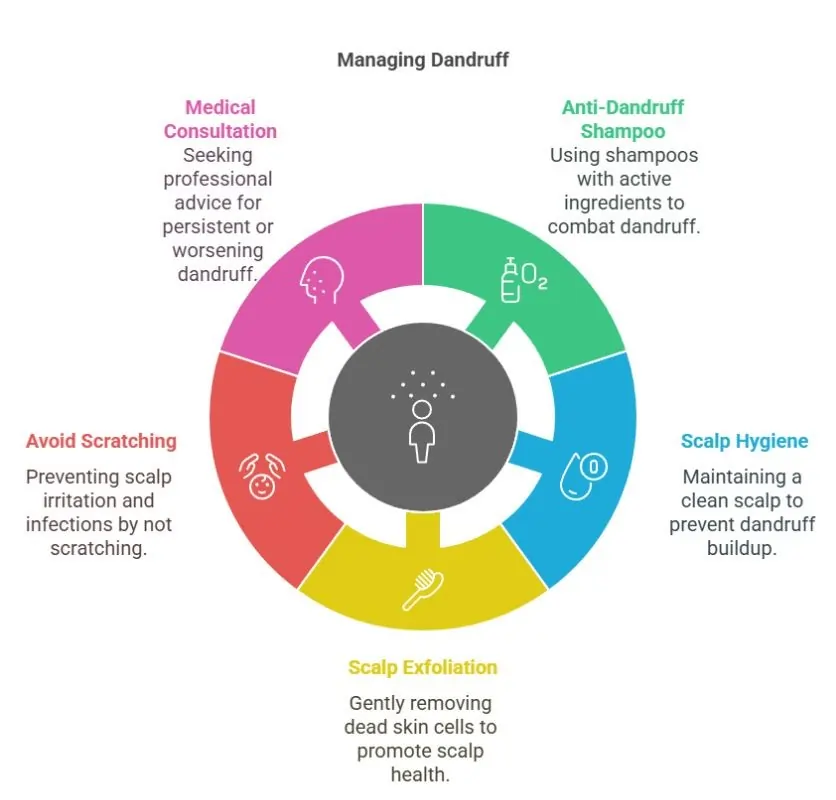Have you ever heard that dandruff flakes are actually worms?
It’s a statement that sounds scary—but is there any truth behind it? In this article, we’ll uncover the facts about so-called “dandruff worms,” what they actually are, and how to take care of your scalp health properly.

What are dandruff worms?
“Dandruff worms” is a viral myth that has spread through social media and word of mouth. Many people believe that the white flakes falling from the scalp are small worms, or that worms live under the scalp and come out as flakes.
Are dandruff worms real?
There is no scientific evidence that worms live in the scalp or come out with dandruff. Most of the time, what people call “worms” are just:
- Hardened sebum strands
- Flakes mixed with dead skin and oil
- Dandruff clumps due to scalp buildup
These may appear stringy or thread-like dandruff worms in humans, especially when the scalp hasn’t been washed properly for several days. But they are not parasites or worms.

🧠 What Actually Causes Dandruff?
Dandruff is caused by multiple factors, including:
- Overgrowth of Malassezia (a natural yeast on your scalp)
- Excess oil production
- Seborrheic dermatitis (an inflammatory skin condition)
- Poor scalp hygiene
- Harsh hair products or weather changes
None of these causes are related to worms or parasites.
🚫 Are There Any Real Scalp Parasites?
Yes, but they’re rare—and they’re not related to dandruff. Here are a few examples:
- Head lice: Tiny insects that live on the scalp and feed on blood
- Demodex mites: Microscopic mites found in hair follicles (mostly harmless)
- Scalp infections: Fungal or bacterial, but not worm-related
If you suspect an infestation, consult a dermatologist instead of assuming it’s dandruff worms.
✅ How to Treat Scalp Buildup and Dandruff Properly
Here’s what you should do if you notice flaky, itchy scalp with stringy white clumps

🔚 Conclusion: Don’t Believe the Hype
There’s no such thing as dandruff worms in humans. It’s a myth caused by misunderstanding what dandruff looks like under poor scalp conditions. Maintaining good hygiene and using the right scalp care products can completely prevent this issue.


